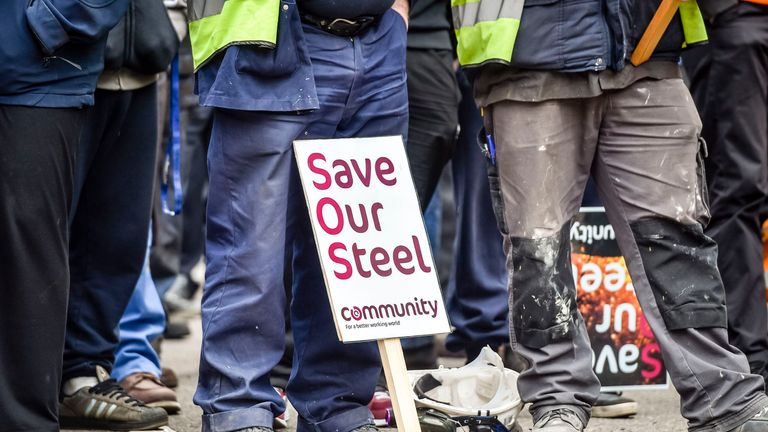Tata Steel and Thyssenkrupp abandon joint venture on regulatory demands
Tata Steel says it is business as usual for its Port Talbot steelworks but “all options” are on the table for its European business after a key merger plan was abandoned.
The Indian company and Germany’s Thyssenkrupp had wanted to create the second-largest steelmaker in Europe through a 50-50 partnership – a deal that unions said would safeguard investment and the 4,000 jobs in South Wales.
But the firms announced on Friday they had decided to part ways because remedies demanded by the EU competition regulator went beyond the “logic” of the deal – agreed last June following two years of talks.
Tata made it clear that it planned to operate its European operations as normal, for now at least, saying Port Talbot was cash positive and it would look for strategic opportunities.
Its statement said: “While the proposed joint venture was an important strategic initiative for Tata Steel to create a sustainable portfolio in Europe that would have also helped to de-consolidate the European business and de-leverage its balance sheet, Tata Steel remains committed to the above strategy and would explore all options to achieve similar outcomes in the future.”
Port Talbot became a symbol of the struggles facing UK steel ahead of the tie-up talks in 2016 as the sector battled to restore its competitiveness in the face of high energy costs and the threat posed by cheap Chinese imports.
Roy Rickhuss, general secretary of the steelworkers’ trade union Community, said of the failed merger: “This is obviously a major development that raises as many questions as answers.
“It’s important that there are no kneejerk reactions by Tata Steel in response to this development.
“Now is the time for calm heads and a clear focus on the future of Tata Steel Europe.
“It’s vital that the business is kept intact and the right steps are taken to safeguard jobs and continue investment to ensure a sustainable future.
“Sadly, this may mean yet another period of uncertainty for steelworkers and their families. Community will continue to hold the company to account and to the commitments that have been made to the workforce.”
Tata Steel shares were more than 6% lower following the announcement.
German-listed Thyssenkrupp saw its market value climb by almost 20%.
That was because many investors had resisted the resulting split the joint venture would have caused and also reflected wider changes across the business confirmed in Frankfurt earlier in the day.
Source: Read Full Article



